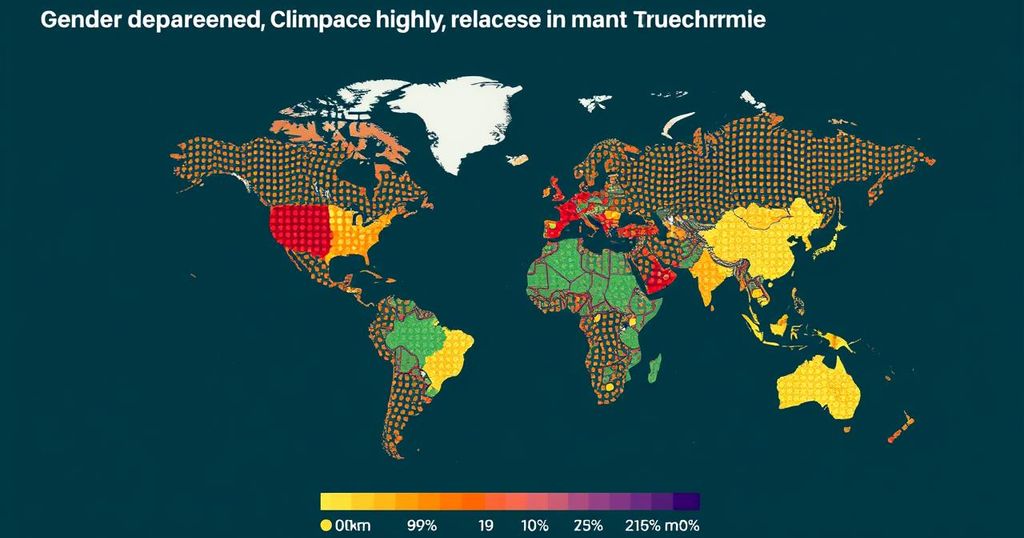This article discusses the distinct and often inequitable impacts of climate change on men and women, highlighting the necessity for gender equality in climate action. It challenges common myths that climate change affects everyone equally, emphasizing that women disproportionately bear the burdens of climate disruptions. To achieve a just transition towards a sustainable economy, intentional strategies must be implemented to promote women’s participation in climate resilience efforts and ensure equal access to resources, decision-making positions, and economic opportunities.
As the global community confronts the escalating climate crisis, it is imperative to recognize and address the differing impacts of climate change on men and women. This phenomenon is not merely a matter of justice; achieving sustainable and equitable solutions requires an in-depth understanding of how gender inequality exacerbates vulnerability to climate change. This discourse is crucial as we approach COP29 in Azerbaijan, bringing to the forefront the necessity of annulling the myths surrounding gender parity in climate action. Women, particularly in marginalized communities, bear a disproportionate share of the burdens imposed by environmental degradation. In rural areas, where many women manage essential resources such as food and water, their workloads intensify significantly during crises like droughts and floods, resulting in restricted access to education and income.
Gendered impacts of climate change remain a critical yet often overlooked aspect in discussions of climate resilience and adaptation. Women, especially in rural areas, engage in tasks directly influenced by environmental changes. Their responsibilities often encompass the management of domestic energy, food, and water, placing them at the forefront of climate vulnerability. In parallel, men face distinct challenges, such as job losses within climate-affected industries, which can prompt migration and family disintegration. Ensuring that climate policies are inclusive and gender-responsive is essential for fostering equity during the transition to a greener economy.
The path forward toward a just transition necessitates the integration of gender equality within climate action frameworks. To catalyze meaningful change, it is essential to dismantle the barriers that have historically marginalized women and to promote their active participation across all levels of decision-making in climate strategies. Gender equality is not an ancillary goal; it is integral to achieving comprehensive and effective climate solutions that foster resilience, innovation, and sustainable development.
Original Source: www.undp.org






